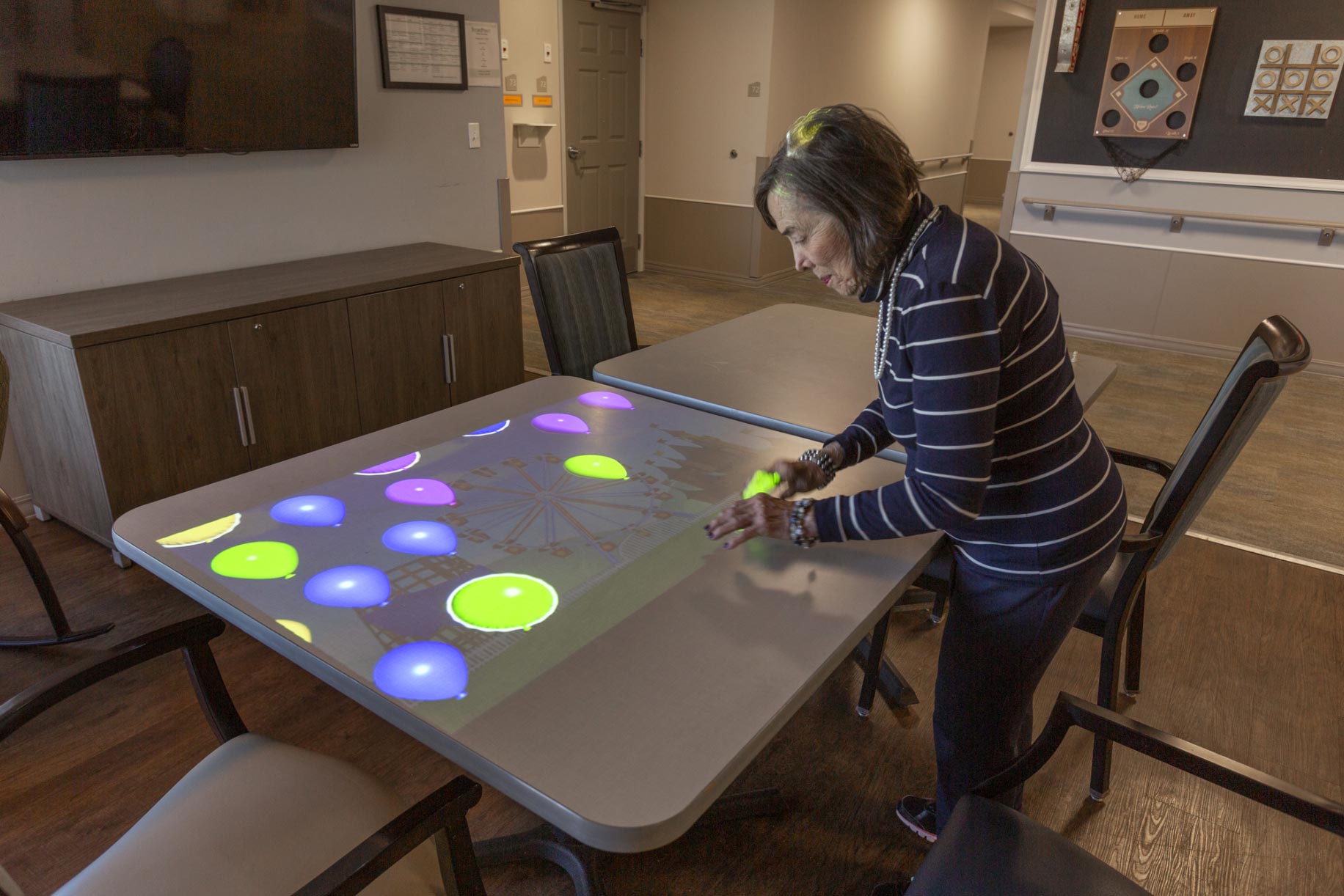Thoughtful Alzheimer's Look after Your Loved Ones
The intricacy of Alzheimer's disease necessitates a specialized technique to care that emphasizes concern and understanding. Recognizing the psychological and psychological demands of people affected by this condition is extremely important in boosting their top quality of life. Caregivers play a vital function in developing a setting that fosters dignity and regard, employing methods that advertise emotional link and decrease anxiety. As we explore the different techniques and techniques that can change caregiving into a much more compassionate experience, it ends up being clear that the trip is as much about the caretaker as it has to do with the specific with Alzheimer's.
Recognizing Alzheimer's Illness
Alzheimer's disease is a dynamic neurodegenerative disorder that mostly affects cognitive function, bring about amnesia, impaired thinking, and modifications in habits. It is one of the most usual form of dementia, representing 60-80% of all instances. The disease usually materializes in individuals matured 65 and older, although early-onset Alzheimer's can happen in younger people.
The pathophysiology of Alzheimer's involves the buildup of amyloid plaques and neurofibrillary tangles in the brain, resulting in neuronal deterioration and synaptic loss. These modifications interfere with communication between brain cells, progressively harming cognitive capabilities and day-to-day functioning. Early signs might consist of difficulty remembering current occasions and obstacles in problem-solving, which can intensify to disorientation and trouble with language.
As the condition advancements, people may show profound memory deficits, complication regarding time and area, and trouble acknowledging enjoyed ones. Behavior adjustments, including stress and anxiety, agitation, and withdrawal, might also occur. Recognizing the scientific development of Alzheimer's is vital for caretakers and health care carriers, as it notifies efficient monitoring techniques and interventions tailored to the requirements of people impacted by this incapacitating condition.
The Importance of Compassionate Treatment
Caring care is vital in supporting people with Alzheimer's condition, as it significantly boosts their quality of life. This approach focuses on the mental and emotional wellness of people, promoting a setting that promotes dignity, respect, and understanding. People with Alzheimer's commonly experience complication, frustration, and anxiousness, which can be minimized through caring interactions.
Compassion in caregiving not just assists in acknowledging the distinct demands of each person but likewise enhances the caregiver-patient connection. When caregivers approach their roles with empathy, they produce a risk-free area where people really feel valued and recognized, which can lower behavioral difficulties connected with the illness. This supportive setting motivates far better communication and interaction, assisting in a much more effective reaction to the care provided.
Additionally, compassionate treatment extends past the individual; it likewise encompasses support for family members. Caregivers who practice empathy are a lot more furnished to attend to the psychological burden dealt with by loved ones, providing peace of mind and guidance with a difficult trip. Eventually, the value of compassionate treatment exists in its capacity to transform the caregiving experience, resulting in improved results for both people with Alzheimer's and their families.
Practical Caregiving Approaches
Reliable caregiving for people with Alzheimer's disease requires sensible techniques that address the one-of-a-kind challenges presented by the condition. One of the leading strategies is developing a consistent daily regimen, which can supply structure and knowledge, minimizing stress and anxiety for both the individual and the caretaker. Caretakers should additionally simplify jobs informative post by damaging them down right into smaller sized, workable actions, thus enhancing the individual's feeling of achievement and reducing frustration.
Communication is an additional important facet; caretakers ought to utilize clear, basic language and maintain eye call to promote understanding. Making use of visual signs, such as tags or images, can additionally assist understanding and navigation in the environment.
Safety and security is vital. Adapting the space to remove dangers-- such as mounting or securing carpets grab bars-- can aid stop mishaps. Furthermore, caretakers ought to encourage freedom by enabling people to take part in acquainted tasks, which can strengthen self-confidence and promote health.
Emotional Support Techniques
Psychological health is a critical element of look after individuals with Alzheimer's condition, as it directly impacts their lifestyle. Alzheimers Care Charlotte. Offering psychological support methods can substantially improve their day-to-day experiences and foster a complacency and belonging
One reliable method is energetic listening, which involves giving complete attention to the individual, acknowledging their feelings, and reacting with empathy. This method helps the person really feel valued and recognized, minimizing feelings of seclusion or disappointment. Additionally, utilizing recognition treatment can be beneficial; as opposed to dealing with misunderstandings, caretakers can attest the individual's experiences and emotions, promoting a relaxing atmosphere.
Taking part in memory treatment is one more powerful approach, enabling individuals to share sensations, memories, and tales connected with their past. This not only promotes cognitive function however likewise reinforces psychological links. Including familiar music or art can additionally evoke positive emotions and spark happy interactions.
In addition, making sure routine physical touch, such as check this site out holding hands or mild hugs, can offer convenience and reassurance, reinforcing psychological bonds. These techniques, when regularly used, can create a nurturing environment that sustains the emotional health of individuals with Alzheimer's, enhancing their general health.
Developing a Helpful Setting

Firstly, consider the physical format of the space. Clutter-free locations, familiar furniture arrangements, and well-defined paths can reduce confusion and advertise movement. Making use of calming colors and appropriate illumination can additionally enhance the environment, making it much more welcoming and less daunting.
Second of all, uniformity is important. Preserving a predictable day-to-day routine helps individuals with Alzheimer's feel much more safe and secure. Familiar activities, normal dish times, and arranged social interactions can substantially minimize anxiety and disorientation.
Additionally, sensory aspects play an important duty. Integrating acquainted scents, music, and responsive items can stimulate favorable memories and promote involvement. Personalizing the space with cherished photographs and meaningful items can additionally promote a sense of identification.
Verdict
Compassionate Alzheimer's care considerably improves the top quality of life for individuals influenced by this dynamic condition. Ultimately, this approach not only gives important comfort and support but likewise encourages individuals to navigate the intricacies of Alzheimer's with dignity and grace.
As we discover the numerous techniques and techniques that can transform caregiving into an extra thoughtful experience, it comes to be clear that the journey is as much about the caretaker as it is about the individual with Alzheimer's.

Compassionate care is vital in supporting people with Alzheimer's disease, as it dramatically enhances their quality of life - Alzheimers Care Charlotte. Ultimately, the importance of thoughtful care exists in its capacity to change the caregiving experience, leading to improved outcomes for both people with Alzheimer's and their families
Compassionate Alzheimer's treatment significantly enhances the high quality of life for individuals impacted by this progressive condition.